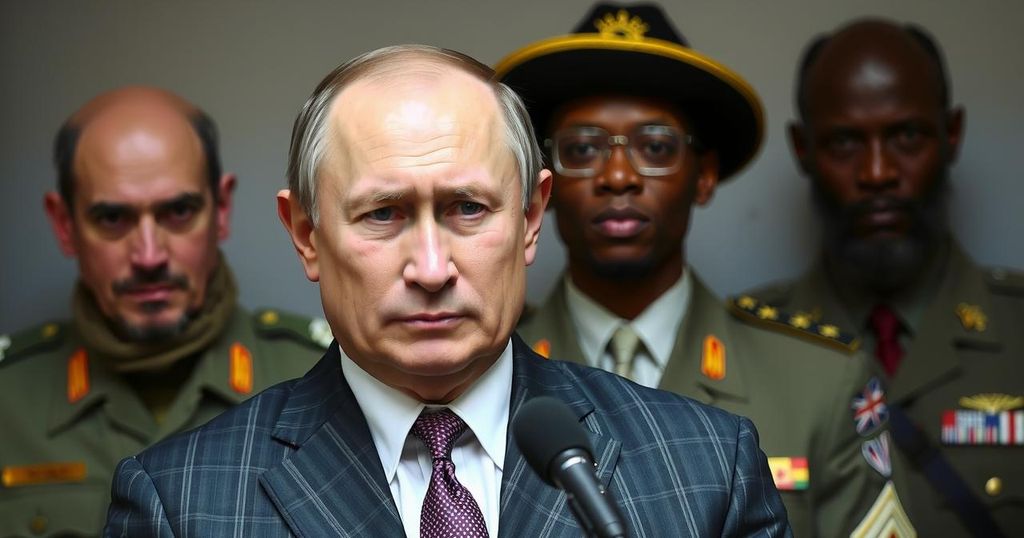Vladimir Putin faces a dual setback in Africa as Sudan and Libya reject Russian military requests. Sudan denied a proposal for a naval base, fearing Western retaliation, while Libya’s Prime Minister insisted on conditional foreign military presence. This decline in support threatens Russia’s regional influence following the Assad regime’s collapse in Syria, prompting a reevaluation of its military strategy in Africa.
Recent developments indicate a significant setback for President Vladimir Putin’s influence in Africa, specifically following his government’s retreat from Syria. Notably, key allies in Africa, namely Sudan and Libya, are rejecting Russian military establishments within their boundaries, further complicating Moscow’s aspirations on the continent. Sudan recently declined a Russian proposal to establish a naval base on the Red Sea and was reportedly offered advanced military equipment as an incentive. Concurrently, Libya’s Prime Minister Abdul Hamid Dbeibeh articulated a firm stance against any unauthorized foreign military presence in Libya, emphasizing sovereignty and official agreements as prerequisites for any foreign involvement.
The geopolitical landscape has shifted dramatically for Russia after the fall of Bashar al-Assad in Syria, raising concerns regarding military installations, such as the Tartus naval base, vital for maintaining access to the Mediterranean Sea. Reports suggest that Russia is contemplating a partial withdrawal from Syria, potentially diverting its military resources and focus toward strengthening alliances in the Maghreb and northeastern Africa. However, the rejections from Sudan and Libya pose significant obstacles to these objectives, signaling a decline in Russian strategic foothold in Africa and the potential for increased Western influence in the region.
The context of this situation involves Russia’s escalating efforts to establish a greater military presence in Africa, particularly amid shifts in the Middle Eastern geopolitical climate following the civil war in Syria. The regime change in Syria has jeopardized Russia’s established military footholds, compelling the Kremlin to seek alternative alliances in Africa for strategic advantages. Since 2019, initiatives aimed at creating a naval base in Sudan have faced challenges due to internal conflicts, while Libya’s ongoing instability exacerbates difficulties concerning foreign military intervention. The responses from Sudan and Libya highlight a growing desire among African nations to assert sovereignty and resist external military influence, particularly from Russia in the wake of Western scrutiny and potential repercussions.
In conclusion, the concurrent dismissals by Sudan and Libya of Russian military proposals mark significant hurdles for Moscow’s ambitions in Africa. As Russia navigates the aftermath of its involvement in Syria, this loss of support from key regional partners signals a potential decline in its influence. With the complexities of the geopolitical landscape evolving, Moscow’s ability to maintain its strategic foothold hinges on negotiating acceptable terms with its allies. The situation underscores a broader trend of regional actors prioritizing national sovereignty amidst foreign military interests.
Original Source: www.newsweek.com







